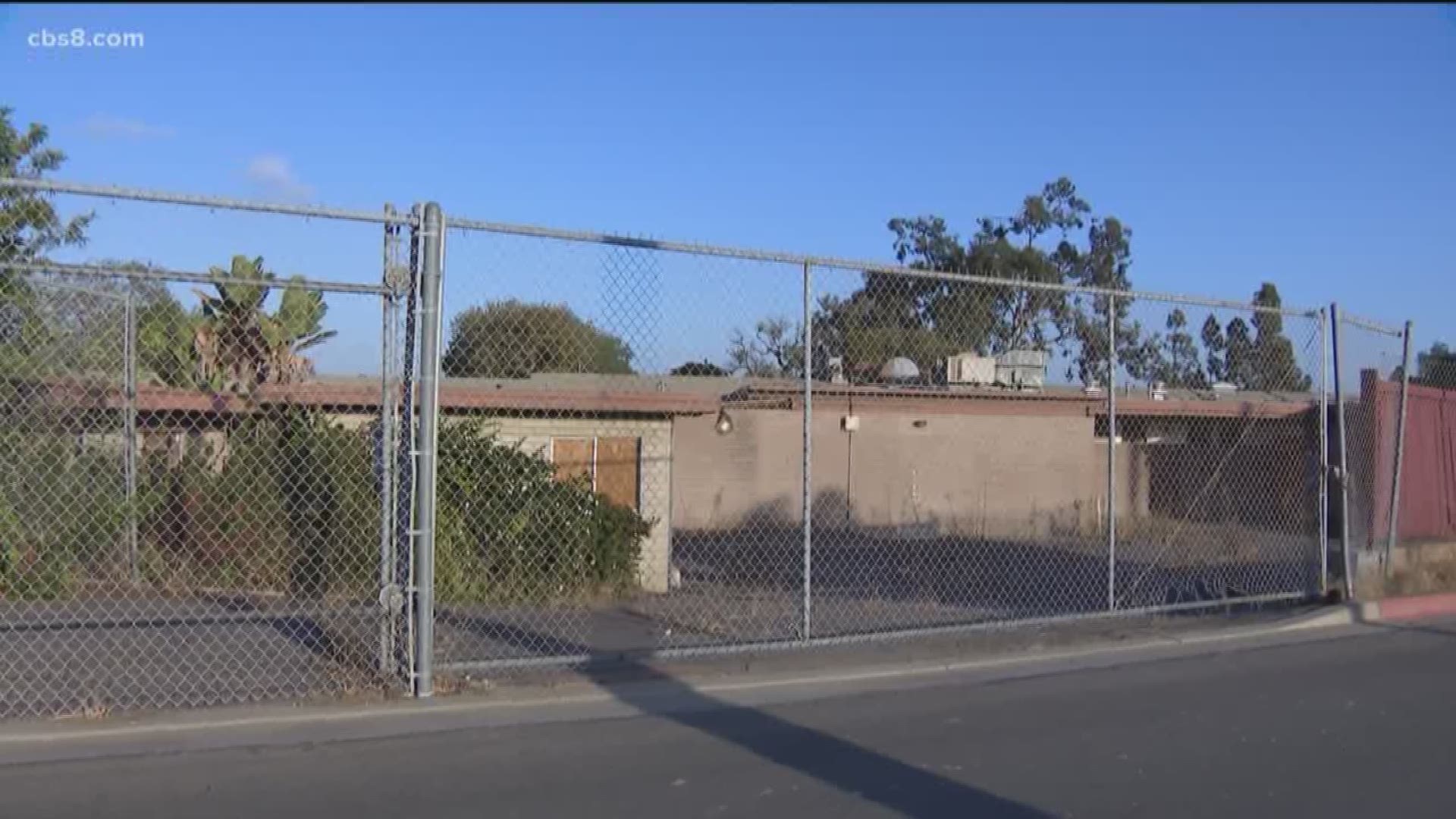SAN DIEGO — A prime piece of real estate in Hillcrest that was at one point eyed for new luxury condos will now serve a different purpose. The seven-acre plot along the 4300 block of Third Avenue which has remained vacant for years will now be the site of a new mental health facility.
The San Diego County Board of Supervisors on Tuesday unanimously approved the behavioral health facility as part of a greater regional program.
When completed, the Central Region Behavioral Health Hub will offer multiple services like crisis stabilization, inpatient and intensive outpatient care -- via partnerships with long-term behavioral and mental healthcare facilities -- to ensure patients regain stability.
According to county documents, the project has a one-time cost of $110 million to $115 million.
Supervisor Nathan Fletcher on Monday announced that county-owned property was deemed feasible as the site for a behavioral health facility.
Fletcher first proposed redeveloping the dilapidated property at 4308 Third Ave. into a behavioral health center in March, and the county has been conducting a feasibility study since then.
"The Board of Supervisors today voted to accept the feasibility report on the Central Behavioral Health Hub and in favor of proceeding with advancing partnership discussions with UC San Diego Health and Scripps Health," Fletcher said. "This model of care is envisioned to co-locate a range of mental health and substance abuse services at a single facility to service people in need. The hub will continue us down the path to creating a coordinated, integrated, regional behavioral health system."
The facility would provide behavioral health support from UC San Diego Health and Scripps Health through a partnership with San Diego County.
Fletcher said he hopes to have a final agreement between the county, UCSD Health and Scripps Health in place by January to begin the process of building the facility.
Some residents in the area, however, are expressing concerns over the addition to their neighborhood.
"[I'm concerned] that people will be wandering around - that we'll have a lot of extra homeless and other people wandering around the neighborhood that wouldn't normally be back here," said Michael Allen who recently moved to the area.
Luke Bergmann, the county's director of Behavioral Health, said the vote could lead to future partnerships on other facilities, helping the county move from crisis-driven to chronic care.
He said Palomar Health is working on a facility in Escondido, with the goal of having it operational in five years, while Rady Children's Hospital is also working to increase crisis stabilization services for children near its hospital campus.
Supervisors praised the creation of a new facility. Supervisor Kristin Gaspar said she was "extremely proud of the collaboration in this room today," adding the region is ready for more similar private-public efforts.
Supervisor Jim Desmond said in terms of mental health care, a lot has happened in the last year, starting with the county's regional workshop lead by Gaspar. Desmond he would like to see more residential facilities for people just released from hospitalization.
"We want to make that path easier to treatment and care, rather than the path to addiction and jail," he added.
Patty Maysent CEO of UCSD Health, described the Hillcrest facility as a "game changer."
"We have the opportunity to do something really extraordinary," she added. "It wouldn't be happening without a partnership requiring all of us to have skin the game."

